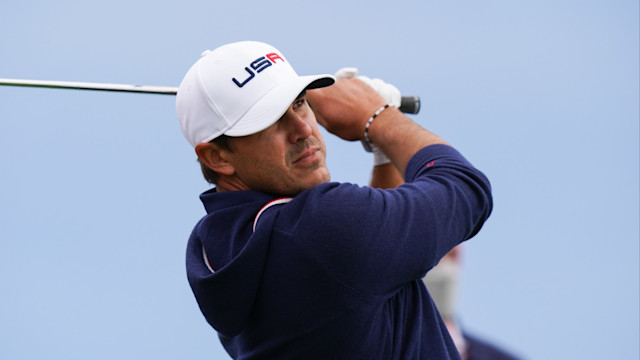quick coaching
What We Can Learn from Tiger Woods: Resilience, Adaptation, and Parenting

Acceptance of Physical Limitations
Reinvent Your Technique
Commitment to Physical Conditioning
Mental Resilience
Patience is Key
Guiding the Next Generation: What Parents Can Learn from Tiger Woods
Fostering Passion Over Pressure
Balanced Guidance and Independence
Leading by Example
Emphasizing Enjoyment and Growth
Building a Supportive Environment

Sorrento, FL
Brendon Elliott
Director of Instruction, Freelance Golf WriterAfter 16 remarkable years of nurturing young talent and fostering a love for golf through The Little Linksters Golf Academy, Brendon Elliott is excited to announce the transition of leadership to esteemed Coach Ricky Collado in 2025. As the baton is passed, Coach Ricky will take charge of all operations and become the primary point of contact for any Linksters-related inquiries. As Brendon steps into a new chapter, the focus will shift to launching and growing BE A GOLFER, a new academy dedicated to competitive teenage golfers. This initiative will continue both in-person and remote coaching, harnessing years of expertise to nurture the next generation of golfing talent. Further expanding horizons, Brendon will also dedicate time to One More Roll Golf Media. This venture aims to collaborate with various golf media outlets and businesses, delivering high-quality written, video, and voice content. Despite these new ventures, Brendon will remain closely connected with Little Linksters. A commitment to collaboration with Coach Ricky will continue, particularly with projects like the PGA Junior League, ensuring a lasting impact and smooth transition. “I am thrilled about the future of Little Linksters under Coach Ricky Collado’s leadership. This transition marks a change and an exciting new direction for me and the academy. I look forward to contributing my efforts towards developing competitive young golfers and advancing in the golf media landscape.” ~ Brendon R. Elliott, PGA More About Coach Brendon... Brendon Elliott is a distinguished PGA Professional who has received over 25 prestigious industry awards recognizing his contributions and influence in youth golf, most notably, the 2017 PGA of America National Youth Player Development Award. With numerous appearances on the Golf Channel and local news outlets in Florida, Brendon has established himself as a respected educator and influencer in the golf industry. Renowned for his expertise in all aspects of golf, he is a sought-after speaker at golfing events and panels. In the past three years, Brendon has expanded into media, writing for esteemed outlets such as PGA.com, PGA Magazine, Golf.com, GolfWRX.com, RG.org, and many others. Elliott is also part of the “Quiet Please Golf Podcast” crew and hosts a livestream show on the Golf Live App called “Monday Evening Tee Time.” Brendon’s dedication to advancing the sport has made a significant impact on the golf community.


